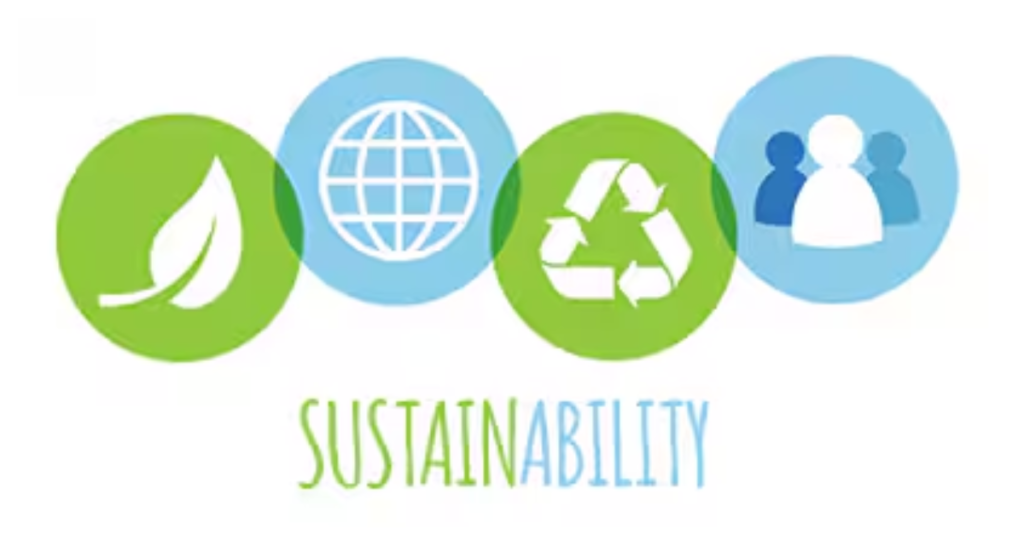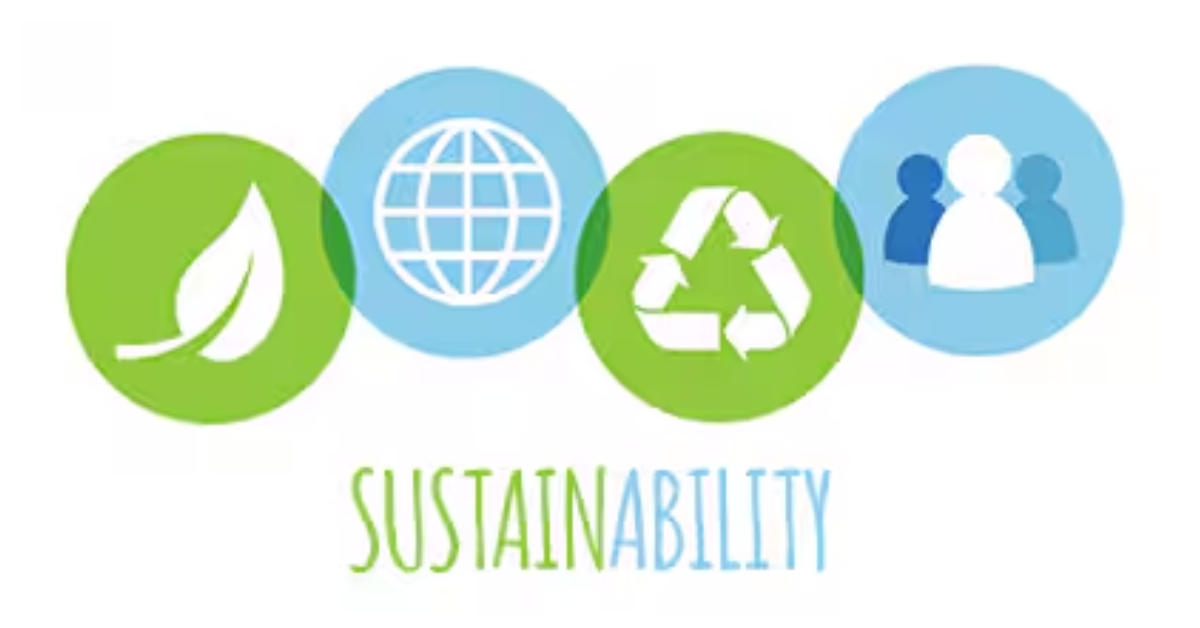In recent years, the focus on sustainability has gained significant momentum across various sectors, and universities are at the forefront of this movement. As educational institutions prepare the next generation of leaders, their commitment to sustainability is critical in addressing the pressing environmental challenges we face today. This article explores university sustainability programs, their significance, key initiatives, and how they are reshaping the educational landscape.

The Importance of University Sustainability Programs
Sustainability encompasses a broad spectrum of practices aimed at reducing environmental impact, conserving resources, and promoting social equity. University sustainability programs play a pivotal role in this effort by integrating sustainable practices into campus operations, academic curricula, and community engagement. Here are several reasons why these programs are essential:
- Educational Impact: Universities serve as hubs of knowledge and innovation. By embedding sustainability into their curricula, they equip students with the skills and knowledge necessary to tackle global challenges. Courses on renewable energy, sustainable agriculture, and environmental policy are just a few examples of how universities prepare students to be environmentally conscious citizens.
- Research and Innovation: Universities are also centers for research, and many have dedicated sustainability research initiatives. These programs foster innovative solutions to environmental problems, ranging from climate change to waste management. Through interdisciplinary collaboration, universities can drive technological advancements and contribute to a more sustainable future.
- Campus Operations: Universities are significant consumers of energy and resources. Sustainability programs focus on reducing the ecological footprint of campus operations through initiatives like energy-efficient buildings, waste reduction strategies, and sustainable transportation options. These efforts not only benefit the environment but also often lead to cost savings for the institution.
- Community Engagement: Universities are deeply rooted in their communities. By promoting sustainability, they can engage local stakeholders, enhance community resilience, and promote social equity. Collaborative projects, service-learning opportunities, and outreach programs connect students and faculty with the community, amplifying the impact of sustainability efforts.
Key Components of University Sustainability Programs
1. Curriculum Development
Integrating sustainability into the academic curriculum is a foundational aspect of university sustainability programs. This can take various forms, such as:
- Interdisciplinary Courses: Programs that combine elements of science, social science, and humanities encourage a holistic understanding of sustainability challenges.
- Experiential Learning: Opportunities for hands-on learning, such as field studies, internships, and research projects, allow students to apply theoretical knowledge in real-world contexts.
- Sustainability Certifications: Many universities offer certification programs in sustainability, providing students with credentials that enhance their employability in green sectors.
2. Campus Initiatives
To demonstrate commitment to sustainability, universities implement various campus initiatives, including:
- Green Building Practices: Constructing energy-efficient buildings that adhere to sustainability standards (such as LEED certification) minimizes energy consumption and enhances occupant comfort.
- Waste Reduction Programs: Initiatives aimed at reducing waste, such as composting, recycling, and zero-waste events, help minimize the environmental impact of campus activities.
- Sustainable Transportation: Promoting public transportation, biking, and walking through improved infrastructure and incentives encourages a reduction in carbon emissions from commuting.
3. Research and Innovation
Research is a crucial element of university sustainability programs. Many institutions focus on areas such as:
- Renewable Energy Research: Exploring advancements in solar, wind, and bioenergy technologies helps reduce dependence on fossil fuels.
- Sustainable Agriculture: Researching methods that improve food security while minimizing environmental impact is essential for future food systems.
- Climate Change Studies: Investigating the effects of climate change and developing adaptation strategies is critical for mitigating its impacts on society and ecosystems.
4. Community Outreach and Engagement
Effective sustainability programs extend beyond campus boundaries. Engaging the local community is vital for fostering a culture of sustainability, which can include:
- Collaborative Projects: Partnering with local organizations for community gardens, clean-up events, and educational workshops helps spread awareness and encourages sustainable practices.
- Service Learning: Integrating community service into academic programs allows students to apply their skills while contributing positively to the community.
- Public Events: Hosting lectures, conferences, and seminars on sustainability topics can educate the broader community and stimulate dialogue on environmental issues.
Examples of University Sustainability Programs
Numerous universities worldwide have made significant strides in their sustainability efforts. Here are a few noteworthy examples:
1. University of California, Berkeley
UC Berkeley has been a leader in sustainability, implementing a comprehensive sustainability program that includes the following initiatives:
- Carbon Neutrality Goals: The university aims to achieve carbon neutrality by 2025, focusing on energy efficiency and renewable energy sources.
- Sustainable Campus Operations: Berkeley has invested in green building designs and zero-waste initiatives, significantly reducing its environmental footprint.
- Sustainability Research: The campus is home to various research centers dedicated to sustainability, such as the Berkeley Institute of the Environment, which fosters interdisciplinary collaboration.
2. Arizona State University
ASU is recognized for its commitment to sustainability, offering several innovative programs:
- Sustainability Studies Degree: The university offers undergraduate and graduate degrees focused on sustainability, preparing students for careers in the field.
- Zero Waste Goals: ASU has set a goal to achieve zero waste by 2025, implementing comprehensive recycling and composting programs.
- Sustainable Transportation: The university promotes alternative transportation methods, including bike-sharing programs and electric vehicle charging stations.
3. University of Edinburgh
The University of Edinburgh is making significant efforts in sustainability through its various programs:
- Sustainable Development Goals (SDGs): The university aligns its sustainability strategy with the UN’s SDGs, promoting research and initiatives that address global challenges.
- Green Campus Initiatives: Edinburgh has implemented various initiatives aimed at reducing energy consumption, including energy-efficient buildings and renewable energy projects.
- Community Engagement: The university actively engages with local communities through outreach programs, enhancing awareness of sustainability issues.
Challenges Facing University Sustainability Programs
Despite the progress made in sustainability, universities encounter several challenges that can hinder their efforts:
1. Funding and Resources
Many sustainability initiatives require substantial investment, which can be a barrier for some institutions. Securing funding for research projects, infrastructure upgrades, and community outreach programs can be challenging, especially in times of budget constraints.
2. Institutional Resistance
Change can be met with resistance at various levels of university administration. Overcoming bureaucratic hurdles and ingraining sustainability into the institution’s culture requires persistent effort and collaboration.
3. Balancing Competing Priorities
Universities often face competing priorities, such as academic performance, student satisfaction, and financial stability. Aligning sustainability initiatives with these priorities is crucial for garnering support and ensuring long-term success.
The Future of University Sustainability Programs
The future of university sustainability programs looks promising, with increasing awareness and commitment to environmental issues. Here are a few trends shaping the future landscape:
1. Increased Collaboration
As sustainability challenges become more complex, collaboration between universities, governments, and private sectors will be essential. Partnerships can drive innovation and amplify the impact of sustainability initiatives.
2. Technology Integration
Emerging technologies, such as artificial intelligence and data analytics, will play a crucial role in advancing sustainability efforts. Universities can leverage these tools for energy management, waste tracking, and research.
3. Global Perspectives
With climate change being a global challenge, universities are increasingly recognizing the importance of a global perspective. Programs that incorporate international experiences and partnerships can enhance students’ understanding of sustainability issues on a broader scale.
Conclusion
University sustainability programs are crucial in fostering a more sustainable future. By integrating sustainability into curricula, campus operations, and community engagement, universities can educate future leaders, drive innovation, and positively impact their communities. While challenges remain, the commitment of educational institutions to sustainability will continue to evolve, shaping the landscape of higher education and contributing to global efforts for a more sustainable world. As we look ahead, the role of universities in promoting sustainability will undoubtedly grow, inspiring students and communities alike to embrace a greener future.
